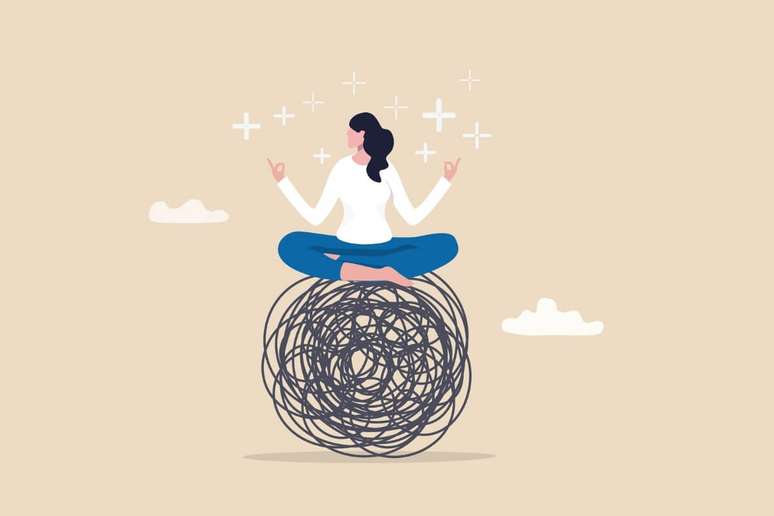Instead of denying or repressing it, it is better to get closer to it, as this emotion acts as fuel.
It is a defendant in the social court. The responsibility for the failure of countless relationships and projects weighs heavily on your head. The trials attributed to it are always tainted by guilt, victimization, resentment or revenge. Over the centuries, and even today in our society, there are those who prefer and recommend repressing it, especially when you are a woman. It is no coincidence that the moral list of the most serious shortcomings, the seven deadly sins, includes it.
The accusations of the prosecution are generally strong and, often, quite understandable. But today I argue on your behalf. I do so not empirically, but rather after having listened to the arguments of those who have learned to live with it, recognizing and enjoying its good, indeed essential, side.
I myself have repressed it, I have pointed my curious finger several times. But talking to witnesses has opened my eyes and now I can confidently state my defense thesis: anger is not only good but necessary. It is perhaps the most misinterpreted emotion in our emotional repertoire, judged by common sense only from the perspective of the upheaval that, yes, it can cause – and often does. But anger is and does much more.
“Anger is the energy of change. It is an imperative emotion, which commands action. It is the vehicle that transforms indignation into dialogue. There is no difficult conversation without anger, because anger anger does not let us give up our values and pushes us towards them. This does not mean that violent and disrespectful aggression must take control,” says Alexandre Coimbra Amaral, a writer, psychologist, master’s in psychology at PUC in Chile, and mental health consultant. The problem is linking the reputation of anger only to explosive outbursts that erode relationships.
Red signal
Anger is part of a set of emotions that activates our defensive motivational brain system, recruited in contexts of threat to our physical or psychological integrity and that awakens the impulse to fight or flee. Fear is also an emotion in this package, as is disgust.
“Unlike other emotions of the defense system, which generate a repellent or inhibitory action, anger seems to have a strong approach component, that is, the intention to get closer to what pushed it to act,” says Thais Gameiro, a neuroscientist and founding partner of Nêmesis, a company specializing in behavioral neuroscience for the market.
Thaís says that the fact that the trigger of anger is usually something very tangible, a person almost always contributes to this phenomenon. “Anger is a red signal that a significant need has been neglected, but that something can still be done. When we don’t see how to intervene, other emotions tend to overwhelm us, such as fear, frustration or sadness,” he explains.

Dark Ways of Anger
The point is that most of us, when we feel angry, tend to follow two dark paths: repressing the feeling, given the bad reputation it has; or focusing on the other’s mistake, to blame and punish him. In the first case, we lose the opportunity to know ourselves and move towards the necessary change, in addition to brooding over the bad taste of the feeling of having missed the train, of not having done anything when it mattered and it was the right time.
In the second, there is the risk of falling into the toxic net of anger, when it hijacks reason and makes us act without thinking, soaked in hatred, puppets of cortisol, adrenaline and noradrenaline – hormones and neurotransmitters linked to emotions.
Who has experienced or witnessed an explosion of explosive anger, the lava of a volcano that swallowed everything? When this happens, it is because the limbic region of the brain, where the defensive motivational system resides, has already taken control, overshadowing the prefrontal cortex, responsible for reflection. Preventing this from happening requires balance and emotional intelligence.
“First of all, you have to have the courage to say that you are angry, to actually use the word. There are people who even avoid it in their vocabulary, but bringing it into the field of language is important. It is also necessary to separate the kitten anger from its true cause: the personal interpretation of what the other has done or said. And this is linked to recognizing which need has been neglected, because anger has to do with that, and not with the other”, says Vivian Rio Stella, teacher of the courses of Nonviolent Communication (CNS) and creator of VRS Academy, courses and training for people and organizations.
“Whenever we feel angry, in fact, we are disconnected from our needs”, says Marshall Rosenberg (1934-2015), American psychologist, doctor of clinical psychology and creator of NVC techniques, in his book “The Surspiring Purpose of Anger” (Pala Atena). Repressing it, therefore, is losing contact with oneself, it is ignoring a powerful and very clear shortcut (everyone knows when they are angry) in identifying what matters most.
Once again aware of the unmet need, we can breathe, reflect and distance ourselves to transform the indignation into a dialogue that promotes change. A conversation that will certainly not be nice, there will be anger, but not the rabid, destructive kind, but the kind that transforms and corrects the routes.
feminine noun
“I feel angry all the time.” I read this sentence from the mouth of the last person in the world I would imagine to be angry. It was said by Mahatma Gandhi (1869-1948), Indian lawyer and spiritual leader, to his grandson, Arun Gandhi, author of “The Virtue of Anger” (Sextant).
The book tells the story of how Mahatma Gandhi faced anger at the sight of the British textile mills stifling the production of hand-woven fabric in India, taking all the cotton to process and sell it back to Indians at an unaffordable price. Arun says his grandfather started spinning to encourage every family to do the same and be self-sufficient. From anger, he built a positive and transformative movement, catering to his needs and those of the collective.
If the pacifist Mahatma Gandhi has been inflamed, perhaps it is time for you, dear reader, to feel empowered. But you, dear reader, have a different path to follow. “Anger is crossed by the question of gender. An angry man is still seen as someone who has power and audacity. The expression of male power remains authoritarian, using anger to provoke fear and respect. But, in women, it appears as something that makes connection difficult,” compares Alexandre.
As women gain more power, become more assertive, stop suppressing their indignation, and come up against a social fabric that still doesn’t know how to deal with it. “It’s common to see a woman’s legitimate anger interpreted as madness, hysteria,” says the psychologist.
Reflecting on this, perhaps female indignation is, in itself, a powerful expression of the transformative power of anger in our lives. society. Not in your angry way, but in the way that makes you think and paves the way for change. As Alexandre says, “It is urgent to start attributing the transformative moments of our lives to anger. Those who blame it are those who are afraid of change.” Does this make sense to you?
By Vanessa Costa – Vida Simples Magazine
Journalist, writer and, now, supporter of the anger that transforms and makes it grow.
Source: Terra
Ben Stock is a lifestyle journalist and author at Gossipify. He writes about topics such as health, wellness, travel, food and home decor. He provides practical advice and inspiration to improve well-being, keeps readers up to date with latest lifestyle news and trends, known for his engaging writing style, in-depth analysis and unique perspectives.








